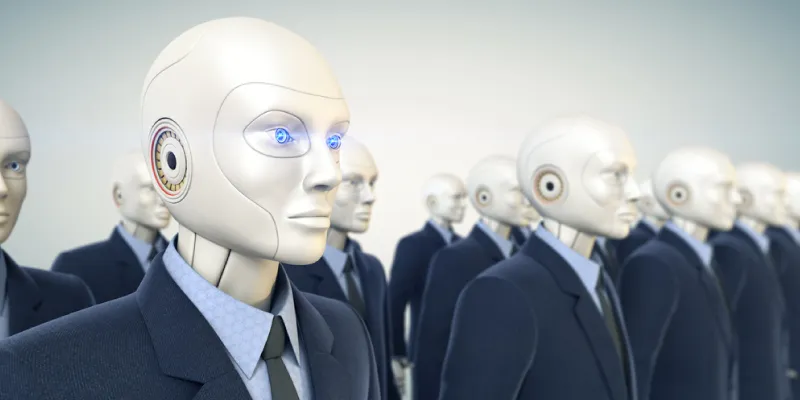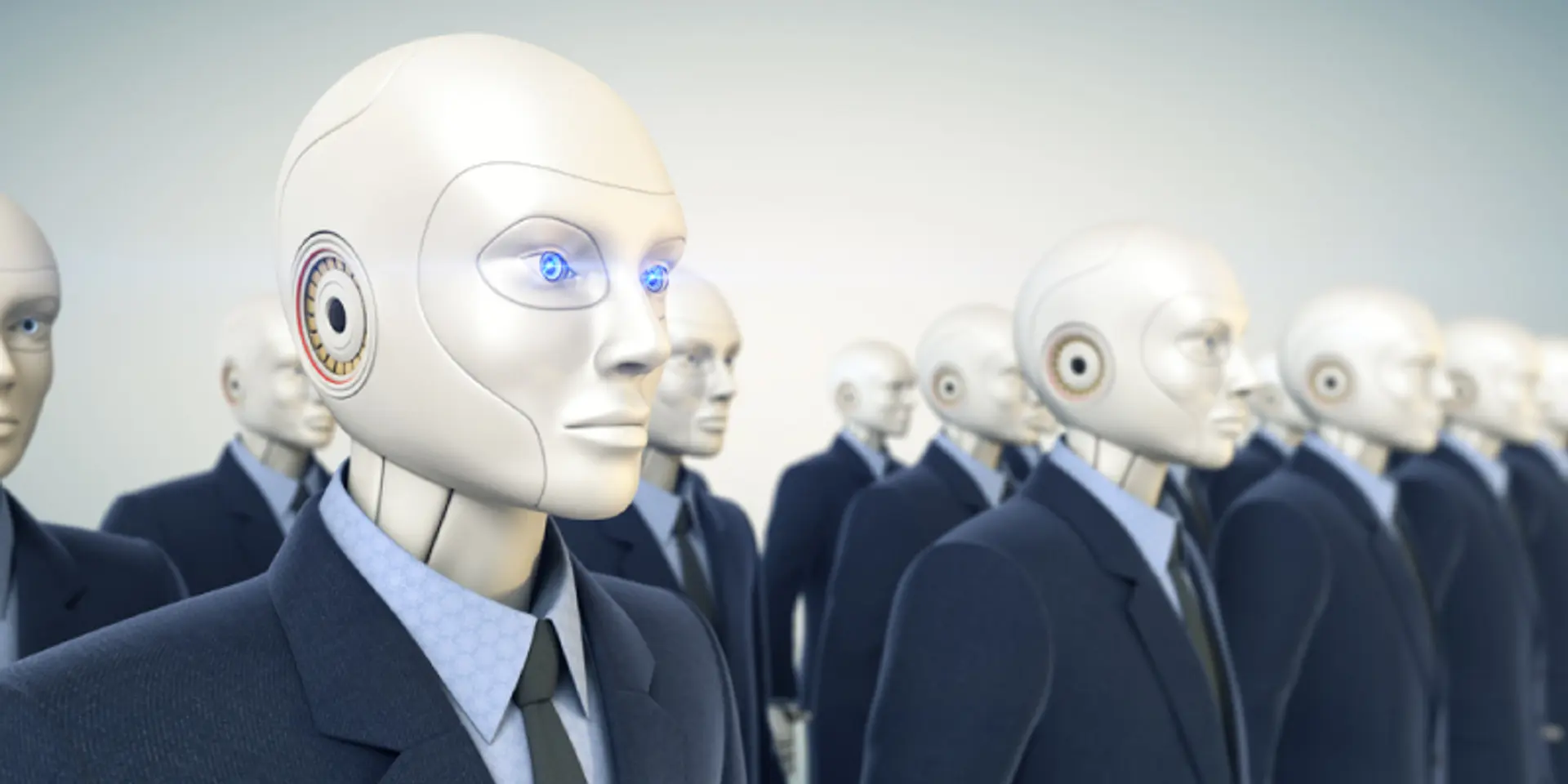Why the rise of the robot workforce isn't all that bad
The working class of robots has arrived. Tireless, intelligent, and efficient to the extreme, these electro-mechanical beings are threatening to render most of the human workforce obsolete. They carry out instructions to a fault, they don't need breaks or salaries, and they're far better than humans at doing most jobs. Naturally, any business that operates with profit as its main objective (which is nearly all of them) will always opt for a robot employee over a human one. And that, in a nutshell, is why the world is up in arms over the uprising of the robot workforce.

Image : shutterstock
It is the factory workers whose jobs are under imminent threat by automation. Several manufacturing industries are already employing highly-efficient robots to replace those workers who carry out routine tasks. Not only to do these robots provide a staggering rise in productivity, they also produce far fewer defects and are much cheaper for companies to employ as compared to their human counterparts. The number of human workers on factory floors is being reduced to overseeing jobs like monitoring the production lines and the robots themselves. Developing countries and emerging economies, which rely heavily on manufacturing productivity to close the gap with rich countries, are expected to be hit the hardest by the automatisation of factories.
Manufacturing isn't the only industry which will see a replacement of human labour in the near future. Multiple studies predict that even those jobs that require some skill, but are still routine and are at risk of being taken over by robots. With the advent of self-driving vehicles and intelligent, voice-recognition softwares, cashiers, truck drivers, legal secretaries, loan officers, retail salespersons, watch repairers, and many, many more at the risk of being replaced by intelligent systems that will be able to do their jobs faster and better. The Indian IT sector is expected to lose around 6.4 lakh low-skilled jobs to automation by 2021 while the 47 percent of all jobs in the United States of America are at risk of being automated in the next 20 years.
While the world is hoping that at least creative and high-skilled jobs will be safe from a robot takeover, the rapid advancement of artificial intelligence (AI), specifically that of machine learning and deep learning, suggests otherwise. The healthcare industry, for example, is already in the midst of an AI revolution. AI systems which can diagnose skin cancer, predict heart failure, identify irregularities in diagnostic radiology scans, and even provide psychotherapy as (or more) accurately than trained medical professionals with years of experience have already been developed. It's just a matter of time before these machine learning systems pass the final stages of testing and are deployed in hospitals and clinics across the world. Meanwhile, people have created robot journalists, lawyers, poets, artists, and even caretakers for children and the elderly. Going by these developments, it would seem that we are doomed. But is it really as bad as it seems? The answer to that is a little complicated.
The dark cloud
There is no denying the fact that automation is going to have, and is already having, a considerable impact on low-skill, blue-collar workers. The current crop of people who fall into this category, especially those who are in the waning years of their careers, will undoubtedly suffer. For a 50-year-old factory worker earning minimum wage who finds himself suddenly replaced by a robot, finding a new job to sustain himself is an improbable task. Since people in this category are typically not very well-educated, they don't have the luxury of time or money to learn a new skill or switch over to a career which is completely new to them.
Creative and technical jobs are, at least, going to remain unaffected in the immediate future, but they do require considerable talents and knowledge which can be gained only through experience and education. With no access to these crucial needs, and no forthcoming support from their nation's government to address the issue, the future of at-risk workers employed in fields like manufacturing, logistics, and office support looks bleak.
One of the most vaunted solutions for this rapidly-approaching dilemma is the implementation of universal basic income (UBI) programs. And while a few countries are carrying out pilot runs of the promising scheme, most are still wasting precious time debating its pros and cons.
The silver lining
Throughout the course of history, people have always tended to overreact when a new technology emergences to threaten the extant job market. It happened in early 19th century England when Luddites went on the offensive against textile machines. It happened when cars replaced horse-drawn carriages and again when Ford first started using robots to manufacture their cars. It happened more recently when the computer was invented. The arrival of a new technology which has the potential to eliminate millions of jobs always pushes the world on edge. But history shows us that this fear is largely unwarranted.
A detailed study by a trio of economists at consultancy firm Deloitte found that technology has created far more jobs than it has destroyed over the past 140 years. While difficult, dangerous, and dull jobs witnessed a steep decline, jobs centred around human-services – like teachers, welfare workers, and care givers – witnessed an explosive growth. The advancement of technology also creates new jobs that we can't possibly imagine yet. For example, take some of the world's most popular jobs at the moment. Thirty years ago, no one could have fathomed careers like web developer or data scientist. Yet they exist and are among the most in-demand and high-paying jobs currently in existence.
Economic change because of automation is nothing to worry about either. An increase in production, which is a given with automation, will also result in an improvement in a nation's GDP and hence an improved quality of living. As the demand for skilled work increases, the wages of such jobs will also increase, giving people a greater purchasing power to further bolster the economy.
Steven Pearlstein, a business and economics writer, explained this point in a Washington Post article: “It is the natural dynamic by which market economies become richer as productivity improves. Improvements in agricultural productivity led to a wave of migration of farmworkers to the cities, where they provided the manpower for an industrial economy that eventually become so productive that we could afford to buy more health care, education and, yes, government.”
As a result of automation, future generations will end up learning more, working in more meaningful jobs, and having better lives as a result. In the long-term, then, it seems like automation will be a blessing and not a curse. Unless, of course, the robots decide that they're better off without us entirely.



